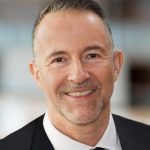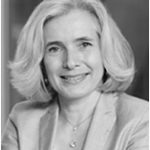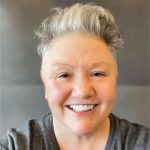Biotech Pride: 19 Industry Leaders Who Identify as LGBTQ
Scientists have created mRNA vaccines that are saving millions of lives. Better cancer drugs are in the works. Gene editing technologies, and gene therapies, offer potential cures.
Teams of dedicated people are making these things happen, and many of the people on these teams identify as LGBTQ.
As part of Pride Month, I asked TR readers to nominate members of the LGBTQ community who have made, and continue to make, outstanding contributions to the industry.
So many nominations poured in, they can’t all fit in one article.
For today, let’s appreciate some biotech leaders — 19 in all — who publicly identify as LGBTQ and who are using their scientific and business skills to make a difference for human health.
Isabel Aznarez, co-founder, VP of biology, Stoke Therapeutics
Aznarez got her PhD in human molecular genetics from the University of Toronto. In the early 2010s, she was working on antisense oligonucleotides at Cold Spring Harbor Laboratory with Adrian Krainer.

Isabel Aznarez
He had done pioneering work on RNA splicing that contributed to the development of nusinersen (Spinraza). That’s an important medicine for spinal muscular atrophy from Ionis Pharmaceuticals and Biogen.
As that drug progressed in the clinic, Aznarez and Krainer wondered: could antisense oligonucleotides be made not only to silence protein expression in a disease process, but also to upregulate protein expression?
With help from Krainer and Apple Tree Partners in 2013, Aznarez dug in. The company continued to hit milestones, and went public in 2019. Stoke, based in Bedford, Mass., is now in Phase I clinical development with a lead candidate for children with Dravet syndrome.
The company’s market valuation has grown to about $1.4 billion.
Aznarez, like in the early days, continues to oversees discovery.
Coming out as a lesbian in her mid-30s was an essential step, she said. It’s part of what gave Aznarez the confidence to start a company.
“When you’re not at peace or happy with who you are, it’s hard to do anything with confidence,” Aznarez said. “When I stopped pretending, it gave me a huge boost of confidence.”
Carolyn Bertozzi, professor of chemistry, Stanford University
Carolyn Bertozzi is a chemical biologist focused on glycans – the beautiful and complicated sugar molecule structures attached to proteins. These carbohydrates have long been underappreciated by biologists more focused on genes and proteins. But that’s changing.

Carolyn Bertozzi
Bertozzi won a MacArthur “genius” grant early in her career at UC Berkeley, and is a member of the National Academy of Sciences. She’s known for leading teams that developed tools to provide better imagery, better information, about glycan behavior in live action.
Her research has spilled out from academia into a number of startups.
- Redwood Bioscience (antibody-drug conjugate technology, acquired by Catalent)
- Enable Biosciences (antibody detection by agglutination-PCR)
- Palleon Pharmaceuticals (degradation of immunosuppressive sialoglycans on immune cells and cancer cells)
- InterVenn Biosciences (high-throughout mass spec for glycoproteomic detection and diagnosis)
- OliLux Biosciences (fast, low-cost TB detection)
- Grace Science LLC (targeting NGLY1 for rare disease, cancer, and neurodegeneration)
- Lycia Therapeutics (lysosomal targeted chimeras to degrade extracellular protein targets)
Bertozzi is also savvy on social media, which she uses primarily as a tool for scientific back-and-forth and as a platform to celebrate people and things she appreciates. For more on Bertozzi’s story, listen to her in this Apr. 2019 episode of The Long Run podcast.
Mira Chaurushiya and David Allison, partners, 5AM Ventures
David and Mira are partners at 5AM Ventures, a firm focused on building startups and with $1.5 billion under management.

David Allison
Allison joined 5AM as a principal in 2016 and was promoted to partner in 2018. Before that, he worked as a principal at Versant Ventures, where he was involved in a number of early-stage bets that panned out BlueRock Therapeutics (acquired by Bayer), NeuWave (acquired by J&J), Crinetics (NASDAQ: CRNX), Aprea (NASDAQ: APRE) and BioTie (acquired by Acorda Therapeutics).
Chaurushiya has been on a similar trajectory, starting at 5AM as an associate in 2015 and getting promoted to principal and then partner in 2020. She was previously a postdoctoral fellow at Genentech.

Mira Chaurushiya
In her VC role, she’s an observer or member of the boards of BlueLight Therapeutics, Precision Nanosystems (acquired by Danaher), Purigen Biosystems, Escient Pharmaceuticals, Magnetic Insight, TMRW Life Sciences, and Novome Biotechnologies; and was previously an Observer at Ideaya Biosciences (NASDAQ: IDYA) and NodThera.
Laurent Fischer, CEO, and Leone Patterson, president and CFO, Adverum
Fischer is a veteran biotech executive who joined Redwood City, Calif.-based Adverum Biotechnologies as CEO a year ago.

Laurent Fischer
Patterson joined Adverum as CFO in 2016, and became CEO from 2018 to 2020. She led the organization through early clinical development with its gene therapy for two indications — age-related macular degeneration and diabetic macular edema.
When Fischer was brought in as CEO in June 2020, Patterson agreed to stay on and work with him as president and CFO.

Leone Patterson
Before joining Adverum, Fischer was senior vice president and head of the liver therapeutic area at Allergan. He was chairman and CEO of Tobira Therapeutics, and joined Allergan after that larger company agreed to acquire Tobira for $1.7 billion in 2016. Adverum is Fischer’s fifth stop as a CEO – the other companies he led were Tobira, Jennerex Biotherapeutics, Ocera Therapeutics, and Auxeris Therapeutics.
Patterson worked her way up in the industry at Novartis, Exelixis, Transcept Pharmaceuticals and Diadexus before joining Adverum.
Tim Funnell, new $200m transatlantic venture fund
Funnell, who got his training in pharmacology the University of Oxford, has been active in the early-stage startup world for the past decade. He’s preparing now on a new transatlantic venture fund.
Before, he did stints at Third Rock Ventures, Oxford Sciences Innovation, and Syncona Partners. Those experiences helped him build scientific contacts on both sides of the Atlantic. He’s been part of the founding team at a series of interesting startups.

Tim Funnell
They include:
- Autolos Therapeutics (T-cell therapies for cancer)
- Casma Therapeutics (autophagy-based drug discovery)
- Gyroscope Therapeutics (gene therapy for eye diseases)
- MiroBio (autoimmune drug discovery)
Funnell also become a founding member of OutBio UK, bringing that sense of community belonging to the UK after seeing how meaningful it was for members of the Boston biotech community.
One reader said of Funnell: “He’s been a great example of US/UK cross fertilisation – he comes back from Third Rock to be an EIR at Oxford Sciences Innovation and shows how to build a competitive international biotech NewCo in Miro with a $34M syndicate including US investors like Samsara.”
Matt Fust, advisor, board member
Fust was nominated by several readers.

Matt Fust
He’s based on the West Coast, and wired in with a number of interesting Bay Area companies, serving on the boards of Arsenal Bio, Atara Biotherapeutics, Crinetics Pharmaceuticals, and Ultragenyx Pharmaceutical.
He’s also a senior advisor to Out Leadership.
Matt plans to moderate a panel discussion on LGBTQ leadership in biotech at the BIO Digital conference this week.
Jesus Gomez-Navarro, Distinguished R&D Fellow, Takeda
Gomez-Navarro, a physician-scientist, joined the biopharma industry in 2000 as Pfizer’s inaugural medical oncologist. He joined Cambridge, Mass.-based Millennium / Takeda in 2009.

Jesus Gomez-Navarro
At Takeda, Gomez-Navarro started as the physician responsible for the first-in-human study and global clinical lead for ixazomib (Ninlaro). It’s the first oral proteasome inhibitor for multiple myeloma that was approved by the FDA in 2015. In 2011, he became the global head of the clinical science function for oncology, a VP-level position he held until 2020.
“He provided both technical and scientific input to numerous development programs and was a major voice across oncology development as the Millennium-Takeda strategy and pipeline evolved,” said Karen Ferrante, the former chief medical officer at Millennium: Takeda. “His enthusiasm for his work is infectious and he has no doubt had major impact in oncology as an authentic leader, and drug hunter and developer.”
Gomez-Navarro has been out since 2000, and has been involved in recent years with Take Pride Takeda Resource Group. It’s Takeda’s employee group in Massachusetts dedicated to people who identify as LGBTQ and their allies.
Paul Hastings, CEO, Nkarta Therapeutics
Hastings is making history this week as the first openly gay man to be elected chairman of BIO, the industry’s international trade association.

Paul Hastings
As the chairman of the BIO, he’s now in a position of industry leadership on important policies such as the industry’s position on drug pricing, patents, support for science, and diversity, equity and inclusion.
He’s passionate about speaking out on a variety of social issues – even when it’s not the popular thing or the politically expedient thing in the moment. See this guest article in TR in January 2021. See also this piece in defense of Asian Americans.
Before any of this, Hastings was a patient. He struggled with Crohn’s disease as a teenager, enduring a couple major surgeries.
Hastings is currently the CEO of South San Francisco-based Nkarta Therapeutics, a company developing engineered Natural Killer cells to fight cancer. Before joining Nkarta, taking it public, and putting it in position to advance the field of NK cell engineering, he endured a pretty big setback. The previous company where he was CEO, OncoMed Pharmaceuticals, the developer of drugs aimed at cancer stem cells, didn’t pan out.
These experiences – as a patient, patient advocate, resilient business leader, and scientific citizen – have shaped who he is. He’ll be introduced as the new chairman at the BIO Digital conference this week.
Moderna Leadership — Melissa Moore, Corinne Le Goff, Eric Huang, Paolo Martini
Cambridge, Mass.-based Moderna accomplished what was considered impossible a year ago. With longtime collaborators at the National Institutes of Health, Moderna created an mRNA vaccine from scratch for the novel coronavirus that was unknown to science until Jan. 10, 2020.

Melissa Moore
The team then drove that vaccine candidate all the way from novel mRNA construct through rigorous Phase III testing in less than one year. They kept pace with a similarly focused and driven team at BioNTech and Pfizer.
It’s an extraordinary scientific achievement that has potential to end this pandemic. It will better prepare humanity for future infectious threats.
Moderna is now scaling up to meet global manufacturing needs, and developing boosters and multi-valent vaccines that may be necessary for variants. It’s further building out its mRNA platform to make other therapeutics.

Paolo Martini

Corinne Le Goff
Everyone has heard of Moderna by this point, but few are aware that some of the major players on this team that’s busy saving the world happen to identify as LGBTQ.
Consider just a few members of the senior leadership team who are part of the LGBTQ community:
- Melissa Moore, CSO of platform research
- Corinne Le Goff, chief commercial officer
- Paolo Martini, CSO of rare diseases, hematology and external R&D
- Eric Huang, CSO of autoimmunity and exploratory sciences

Eric Huang
Stephane Bancel, CEO of Moderna, says Le Goff is the executive sponsor of the company’s internal LGBTQ group. Moderna president Stephen Hoge is the sponsor of the Black / African American employee group, and Bancel is the sponsor of the Asian American group.
These groups inside the company exist, and have executive team participation, for a reason.
“Since the beginning, we have had a culture to include everybody,” Bancel writes. “We want the best talent and [to] make sure they are happy and comfortable.”
Jennifer Petter, co-founder and CSO, Arrakis Therapeutics
Petter is a medicinal chemist by training who has worked on many conventional small molecule drug programs over the years. She attended a Gordon conference six years ago that altered the course of her career.

Jennifer Petter
She saw a couple scientific presentations from Matt Disney at Scripps and Kevin Weeks at UNC Chapel Hill that gave her an idea. Might it now be possible to make small molecules against RNA targets that were long thought to be undruggable?
She caught the bug, and got to work as co-founder and chief scientific officer of Waltham, Mass.-based Arrakis Therapeutics. A couple years later, she came out as transgendered, made the gender transition, and changed her name to Jennifer Petter.
It’s quite a story, both scientific and personal. Hear Jennifer talk about it in her own words in this Sept. 2020 episode of The Long Run podcast.
Laura Shawver, CEO, Silverback Therapeutics
Shawver is a true scientific entrepreneur.

Laura Shawver
She got her PhD in pharmacology at the University of Iowa, and built her career in biotech on the West Coast. She started at Sugen (successfully acquired by Pfizer), and in 2002 became CEO of San Diego-based Phenomix (a diabetes drug developer that shut down in 2010).
While running that startup, she was diagnosed with ovarian cancer. Putting her scientific entrepreneurial skills to work, she founded the Clearity Foundation to help women in a similar position navigating treatment options.
She bounced back in her second CEO role with Cleave Therapeutics, and then succeeded in a big way as CEO of San Diego-based Synthorx. That protein engineering company was acquired by Sanofi in 2019 for $2.5 billion. She then joined her current company, Seattle-based Silverback Therapeutics, a cancer drug developer.
Listen to Laura tell her story on The Long Run podcast from July 2019 (when she was CEO of Synthorx).
Martine Rothblatt, CEO, United Therapeutics
Martine Rothblatt is the founder, chairman and CEO of Research Triangle Park, NC and Silver Spring, Maryland-based United Therapeutics. She came out as transgender in 1994, changed her name from Martin to Martine, and started the company two years later.
United has four products on the market, and more than 900 employees. Market value: $8 billion.
The company is unconventional in many respects. But the results are clear. Few biopharma companies grow to this size.
Paul Sekhri, CEO, eGenesis
Sekhri is the CEO of Cambridge, Mass.-based eGenesis, which is seeking to use CRISPR genome engineering tools for xenotransplantation. The concept is to engineer pigs with organs that can be safely transplanted into humans without being rejected by the human immune system.

Paul Sekhri
The hope is that by making xenotransplantation safe and effective, eGenesis will be able to address shortages of organs, tissues and cells for transplant.
Sekhri was previously the CEO of Lycera. Before that, he was EVP of business development and chief strategy officer for Teva Pharmaceutical and an operating partner at TPG Biotech.
eGenesis raised a $125 million Series C financing in March. It plans to advance first-in-human studies for kidney and islet cell transplantation for Type 1 diabetes.
Denice Torres, board member, Bluebird, Karuna, Resilience, Glaukos

Denice Torres
Following a long career as an executive in large pharma — Johnson & Johnson and Eli Lilly – Torres has come up with a second act as an entrepreneur focused on mentorship and organizational culture. She’s the founder of two organizations, The Mentoring Place and The Ignited Company.
Torres is also busy serving on boards of a handful of biotech companies with big ambitions – Bluebird Bio (gene therapy), Karuna Therapeutics (treatments for psychiatric conditions), Glaukos (treatments for eye diseases), and Resilience (biotech manufacturing).



